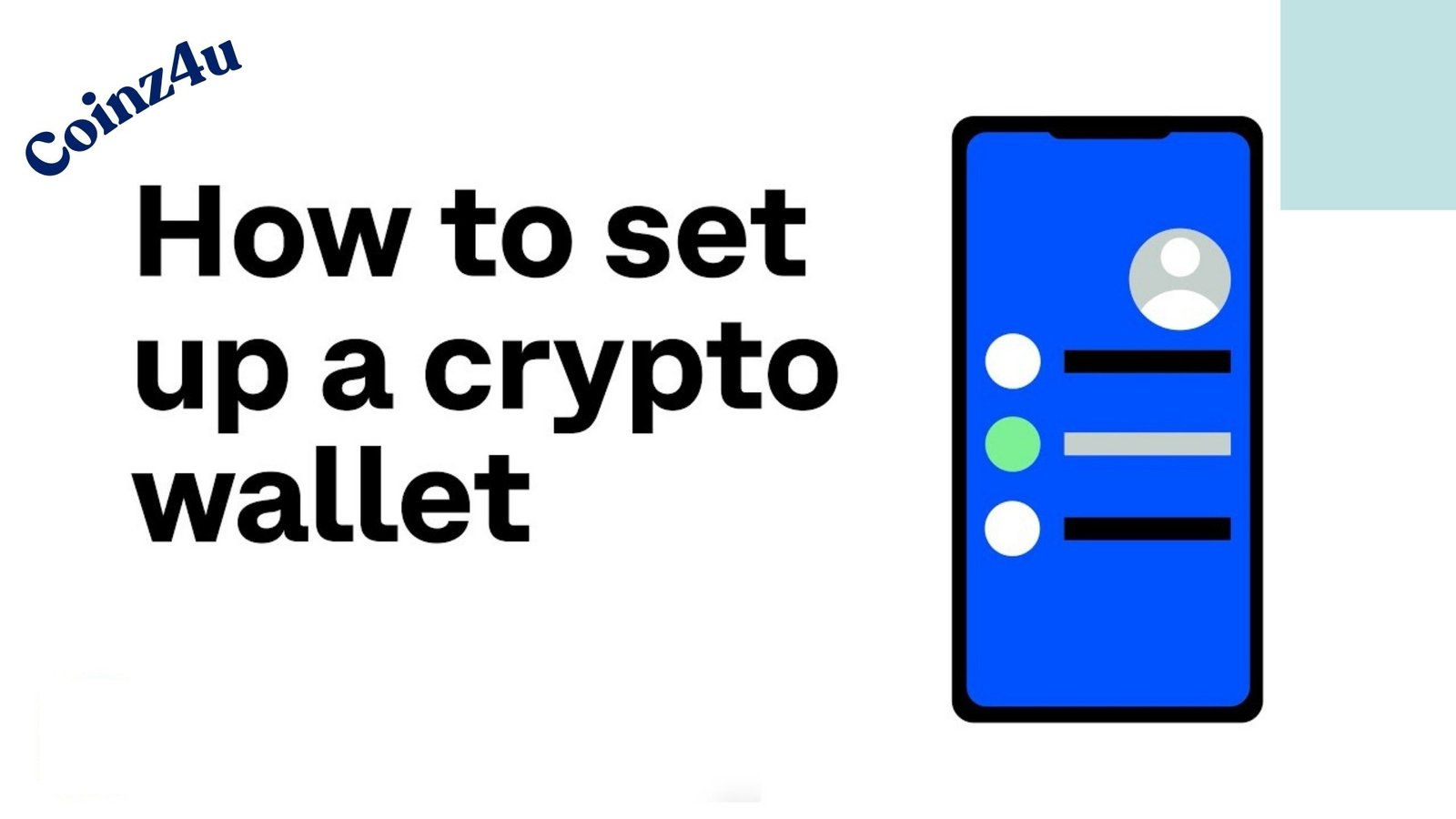Bitcoin Wallet: An Introduction to BTC Storage By Coinz4u

Bitcoin Wallet: An Introduction to BTC Storage By Coinz4u. Buying, selling, and trading Bitcoin (BTC) is now easier than ever. The next thing to do after getting your hands on Bitcoin is to keep it somewhere secure. Maybe you’re asking what the best way is to store Bitcoin. Bitcoins, or BTC, are digital funds that can be accessed with a private key and kept in an electronic wallet. Doing it directly is not necessary. When you use a wallet app, it will automatically generate wallet addresses and utilize your private key to sign any outbound transactions.
One way to store and transfer Bitcoin is in a Bitcoin wallet, which is a digital wallet. Having a physical wallet is analogous to this. The wallet does away with the necessity to physically store currency in favour of storing the cryptographic keys that enable users to send and receive Bitcoin. Some Bitcoin wallets allow you to store other cryptocurrencies. Your Bitcoin wallet only keeps your private key, not your actual Bitcoins. To send Bitcoin from your wallet to another user’s, you’ll need to know their private key, which is stored on the Bitcoin blockchain.
Each Bitcoin wallet has pros and cons regarding usability, accessibility, security, and more. Choosing a Bitcoin wallet involves two primary factors. Determine what kind of Bitcoin wallet you need before selecting the finest one. Built-in cryptocurrency exchanges, QR code scanners, and full-node wallets that support the BTC network and promote decentralization are available depending on the wallet. Ensure your purse supports your currencies and satisfies your safety and usability needs before buying. This essay explains Bitcoin, how to use a wallet, and where to store Bitcoins securely.
How Does a Bitcoin Wallet Work?

Cryptographic key pairs are utilized for Bitcoin transactions. A private key and its corresponding public key form a key pair. Private keys are used for Bitcoin transactions and should be kept confidential. It would be best to have a public key to receive Bitcoin, which anyone can share. One way to generate a public key is to develop a private key first. The process of creating a Bitcoin wallet involves the generation of a seed. Displaying seeds as a string of words is called a mnemonic phrase. With this seed, we can create all the Bitcoin keys you’ll ever need to send and receive.
The Bitcoin industry has settled on this design—the Hierarchical Deterministic (HD) framework—for key generation and management. Most Bitcoin wallets will automatically create new public keys if you wish to accept Bitcoin. Problems with reusing public keys or addresses have been resolved. If you always use the same public key to accept Bitcoin, anyone might potentially see your whole payment history. A user’s privacy is greatly enhanced when keys are treated as tokens with a single use. With the 12- or 24-word list initialized with their wallet, users can always restore their purse if they know their recovery seed. The price of a wallet might range from zero dollars to two hundred or more. When utilizing a wallet for an exchange, you can expect to pay either a flat charge (a few dollars) or a percentage (a portion of the entire value of the transaction).
Types of Bitcoin Wallets
Mobile wallets
A mobile crypto wallet is a must-have for anyone who uses Bitcoin for everyday purchases or in-person transactions. With this software that stores your private keys, you can pay, trade, and store cryptocurrency all from your phone. In addition, some applications leverage the NFC capability of smartphones, allowing users to bypass the need to enter personal information when they tap their phones onto terminals.
Due to their limited use of the blockchain and reliance on trusted nodes inside the Bitcoin network for data integrity, mobile wallets can use simplified payment verification technologies. Unfortunately, this contradicts Bitcoin’s trustless principle, as these trusted nodes handle the currency and transactions. This is a possible drawback of having rapid access to money, yet digital wallets are essential for mobile phones because of their limited system resources.
Mobile wallets are vulnerable to hackers and malware, limiting their use as portable Bitcoin storage. Without two-factor verification, someone using your phone may steal your wallet. Two-factor authentication (2FA) adds a code to your login credentials for further protection. Unlike passwords, two-factor authentication (2FA) codes are texted to your phone or email to verify your login. Two-factor authentication programs like Google Authenticator, FreeOTP, and Authy are great. The apps are immune to email hacking and SIM swap attacks.
Keep bigger Bitcoin holdings in a paper wallet or separate hardware wallet; only deposit what you need into the mobile wallet. Many different Bitcoin wallet apps are available for both iOS and Android devices. Light wallets scan the blockchain to determine your balance, but don’t download the complete blockchain to your mobile device. There are a lot of scammers and fake wallet apps out there that can take your private keys, so be careful.
Web wallets (exchange wallets)
Web wallets, a type of Bitcoin hot wallet, keep your private keys on a server that is always online and managed by an outside entity. Some providers can sync with your desktop and mobile wallets, while others can allow you to use the same addresses on all your devices. In the same way, that mobile wallets let their customers access their money from any internet-connected device, e-wallets do the same thing. When the companies behind the website obtain your private keys, they will have complete control over your money.
There have been cases of exchanges going down and stealing customer money, a significant problem for most e-wallets. Hackers also target these accounts since all that is needed to access an exchange wallet is an email address and password.
Exchange wallets provide a level of security about the potential loss of cash. One example is having a safety net in place to pay out customers in the event of an exchange hack. Because users frequently reuse passwords and email addresses across numerous services, this poses a particularly significant security risk due to the frequency of compromised credentials. The first half of your login credentials consists of your email address.
Desktop wallets

You may keep your private keys safe on your computer’s hard disk or solid-state drive (SSD) by downloading and installing a desktop wallet. They are inherently safer than other payment methods, such as online or mobile wallets, because they do not store user information on external servers and are thus more challenging to steal. Due to their continued internet connectivity, they are fundamentally less secure. Nevertheless, individuals who trade small amounts of Bitcoin from their desktops will find desktop wallets an excellent alternative.
A wide range of desktop wallets are available to meet various requirements. While some prioritize safety, others prioritize privacy, ease of use, decentralization, and other factors. You can get the entire blockchain onto your PC using a wallet that runs as a full node. You’ll need a lightning-fast internet connection and hundreds of terabytes of disc space. But unlike other wallets, they let you fine-tune your control over each transaction. Among the many benefits of operating such a wallet are:
-
Replace-by-fee checkbox: This lets you increase the transaction fee later to speed up your transaction.
-
Performance: Transactions are broadcast directly to the memory pool without going through a third-party node provider.
-
API and CLI: The command-line interface (CLI) offered by full node wallets provides many controls that are unavailable in light wallet apps. The application user interface (API) allows developers to integrate Bitcoin-related functions into their apps. This can also be used to build your wallet app.
Hardware wallets
One unusual kind of Bitcoin wallet is the hardware wallet, which uses a safe physical device to hold private keys. Most people think it’s the safest place to keep Bitcoins of any value. You can use a hardware wallet safely and interact with it in real-time, unlike paper wallets that must be imported into software. Since the stored money cannot be transmitted in plaintext and, in most cases, their software is open source, they are virus-proof.
The screens on most hardware wallets confirm transactions and provide critical wallet information, adding extra protection. For instance, you can input the amount and the desired delivery address, and the screen will generate a recovery phrase. Consequently, your money will be protected if you buy a genuine product from a reliable and skilled maker.
It is highly discouraged to buy a hardware wallet from a secondhand store. Unfortunately, there are phoney hardware wallets out there that can drain your Bitcoin account. Be sure you’re buying a hardware wallet from the manufacturer’s official website before purchasing. Verify the URL in the address bar of your browser.
Paper wallets
To receive Bitcoin, you need a public address; to spend or transfer Bitcoin, you need a private key, which may be found on a paper wallet. Paper wallets often include QR codes that can be scanned and added to a software wallet or wallet app to facilitate instantaneous transactions. You can make a paper wallet using sites that enable you to generate random Bitcoin wallet addresses using your private key. After that, you may print the keys using services that provide a tamper-resistant design or even holographic labels as an alternative.
Paper wallets have the distinct advantage of not storing keys anywhere, making them impenetrable to hacking attempts and spyware that records keystrokes, such as keyloggers. Making a wallet, meanwhile, still necessitates a few safety measures. Please make sure no one can see where you’re storing your purse or when you’re creating it. It’s best to use a fresh OS, like Ubuntu, booted from a DVD or USB flash drive to ensure no spyware keeps tabs on your online activity. The website code should function offline when the paper wallet is configured, enabling users to detach from the internet before crucial generation. Lastly, print from a device that isn’t linked to a network.
Plus, you should know that you are printing sensitive personal information onto paper. Some steps need to be taken to safeguard that document. For example, to preserve it against water damage and everyday wear and tear, it is advised to keep it in an airtight plastic bag and somewhere dry—many folks like to laminate it and put it in a secure place.
How to Set up a Bitcoin Wallet?

Download a free software wallet app or client to set up your Bitcoin digital wallet. Take desktop software wallets, for example. Just download them from their respective websites and install them by following the on-screen instructions. If you want to create an online wallet just for Bitcoin, you can create an account with Coinbase. On the other hand, if you would rather not have a third party handle your Bitcoin wallet, you can purchase a hardware wallet directly from the manufacturer. Each wallet is different; therefore, following the manufacturer’s instructions is essential when setting it up.
Physical Bitcoin vs Banks
Physical Bitcoin
As long as the private key is kept secret, the value of physical Bitcoin coins cannot be spent, even though they are preloaded with a predetermined number of BTC. Typically, a tamper-evident seal will do this. The first Bitbill looked like a credit card, while subsequent alternatives appeared more like spherical medals. Crypto phile Mike Cadwell, known by his alias “Casascius,” made the first Casascius physical Bitcoin in 2011.
A hologram that could be peeled off revealed the private keys; removing it revealed a tamper-evident mark. The coin’s digital value was depleted upon redemption. There have been many new coin makers since then, and you can even get preloaded cards with crypto from some of these businesses. The intrinsic restrictions of physical cash have led to actual Bitcoin being primarily utilized as a collectable. Because actual coins are impractical, one of Bitcoin’s main selling points is the ability to facilitate instantaneous global transfers.
Bank
Wire transfers to cryptocurrency exchanges are just one example of how many institutions hinder Bitcoin-related operations. However, banks are vested in keeping this service under wraps to safeguard their business model. They often use concerns about money laundering as an excuse to refuse to provide it. Bitcoin is supposed to minimize or do away with the necessity for intermediaries like banks, which is why this is the case. Traditional banks and other financial institutions are interested in producing and storing cryptocurrencies like Bitcoin. Also, authorities are taking steps to allow banks to provide custody services for cryptocurrencies.
Since Bitcoin securely keeps currencies and wallet information on its blockchain, banking for cryptocurrency could be considered unnecessary. Bitcoin also eliminates needing a bank’s approval or minimum balance fees when making overseas transactions. The rise of cryptocurrencies has not stopped banks from making efforts to maintain their relevance. Regulated cryptocurrency banks can also hold Bitcoin. Account monitoring and other bank-like safeguards are available, and they can intervene if any questionable activity is identified. You may also use these services to sell cryptocurrencies and get money into a regular bank account.
These services will be helpful if you aren’t planning to keep cryptocurrencies for the foreseeable future. The similarities with banks don’t stop there; they can also confiscate your funds or freeze your account. Even though crypto native banks provide a more decentralized experience than traditional banks, you would still be subject to withdrawal limitations, Know Your Customer (KYC) procedures, and surveillance. On top of that, wholly regulated operations are limited to just a small number of such banks.
How to Cash out Your Bitcoin Wallet?

Although Bitcoin cannot be instantly converted to cash, it can anonymously sell BTC on the blockchain for whatever fiat money you like. For a quick and easy way to convert your Bitcoin into cash, you can use a cryptocurrency exchange to handle the transaction and locate a buyer. At the same time, each wallet has its own set of rules and timelines for transferring fiat money. You should expect to see most of them fulfilled within a day or two of the Bitcoin sale’s completion.
Best Way to Store Bitcoin
The optimal method of storing Bitcoin is entirely up to you; many options exist. Casual investors who value security for their Bitcoin or cryptocurrency holdings should consider a USB drive wallet. You can also use the Open browser to download the Ethereum Mist Wallet from MetaMask’s website and save your Bitcoin on a MetaMask wallet. After you click “Log in with Metamask,” choose “Use ETH wallet.” Under “ETH Wallets,” you’ll see the option to access your Bitcoin. Cold storage solutions for Bitcoin, such as Trezor and Ledger, store cryptocurrency offline on physical devices that resemble USB flash drives. If you’d rather not have the options above handle your private keys, use Binance or Coinbase.





